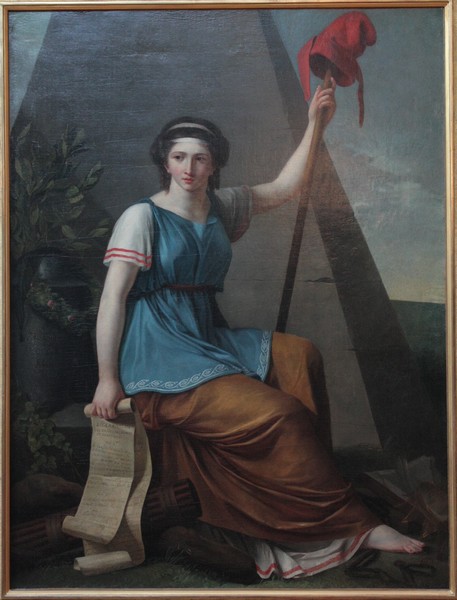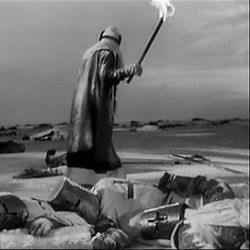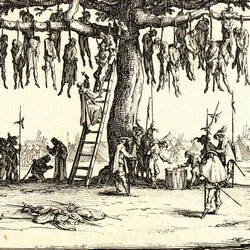
The season is about to end, and a few days ago I was going through my notebook to arrange my notes. And I found a note referring to the Schubertíada 2021. Perhaps you remember that in the first post in September I told you that the artists had been particularly opportune with the encores, and a few weeks later I talked about one of them, Abschied von der Erde. Well, I'll talk about another one today.
Konstantin Krimmel and Daniel Heide performed Die schöne Müllerin. Tradition says that after this cycle or after Winterreise no encore is given, just because it isn't necessary. But, from time to time, there are some encores after Die schöne Müllerin: I remember Der Tod und das Mädchen sung by Thomas Quasthoff or Nacht und Träume by Christoph Prégardien. Krimmel sang two Schubert's Lieder, An den Mond (D. 193, with poem by Hölty) and Wandrers Nachtlied II, and then, strikingly, Freudvoll und leidvoll by Liszt. A third encore by a different composer seemed theoretically improper, but in practice it fitted perfectly with the atmosphere that artists had previously created. The end of the recital was as perfect as if the last song had been Des Baches Wiegenlied, the last lied of Die schöne Müllerin.
Freudvoll und leidvoll's lyrics belong to Egmont (1788). Goethe often extracted poems from his novels and plays to publish them separately (the best known example are Mignon and the arpist's songs), but not this time. However, the poem was (or used to be) well known, in part due to Beethoven's Egmont (1810), given that the fourth section is composed after those verses (five years later, Schubert also composed his version, Die Liebe, D. 210, a less known Lied).
Egmont is a tragedy based on fight of Count Lamoral of Egmont against the Duke of Alba, which ended with a summary trial and the exemplifying execution of the former. Parallel to this historical plot, there is a love plot that I don't know if it has any historical verosimilitude, but we need it to place our Lied. Clärchen and Egmont are in love; the girl's mother wants her daughter to marry a knight named Brockenburg who sincerely loves her (I would say Goethe obviates that Egmont was married and had twelve children, but it appears that the mother is aware of this). At one point, the mother insists the daughter to marry a man who, at least, she loves like a brother, willing to marry her even if he suspects (rightly) that she is Egmont's mistress. She tells Clärchen that she will have a good life with him, better than with the Count, but Clärchen doesn't listen to her and sings a song that begins with the words "Full of joy and full of sorrow". When the mother scolds her because she only thinks of love, Clärchen tells her: "It's a song of marvellous virtue. Many of a time have I lulled a grown child to sleep with it". Egmont arrives amid the argument, and the third act ends with the scene between the lovers.
Whe know Egmont's fate; Clärchen's fate is not better. Brockenburg, in despair because of Clärchen's refusal, had taken a bottle of poison from his brother (a doctor) bag, and had threatened several times to drink it; Clärchen had taken it away and when the young man arrives with the news of Egmont's death sentence, she drinks the poison. Shortly before the execution, the Count has fallen asleep in his cell, and Liberty appears to him and wreaths him with laurels; her features are those of Clärchen. Egmont goes to the scaffold sure of the victory of his people.
Liszt composed Freudvoll und leidvoll in 1844, and published it in 1848. That same year, he revised it, as he did with many other songs; he simplified the piece, both the vocal line and the accompaniment, giving it a more introspective character. This version, published in 1860, will be the one we will hear here. If you want to listen to the first version and allow me the recommendation, look for the recording of Allan Clayton and Julius Drake. In addition to this Lied in two versions, Liszt wrote in 1849 another Lied after the same poem, which is musically completely different; if you wish to listen to it and, again, allow me the recommendation, listen to the performance of Jonas Kaufmann and Helmut Deutsch.
I leave you with Krimmel, Heide and the beautiful Freudvoll und leidvoll. Beautiful because of Liszt's music and because of Goethe, able to say so many things with just twenty-three words.
Freudvoll
Und leidvoll,
Gedankenvoll sein;
Langen
Und bangen
In schwebender Pein;
Himmelhoch jauchzend,
Zum Tode betrübt—
Glücklich allein
Ist die Seele, die liebt.


















Comments powered by CComment